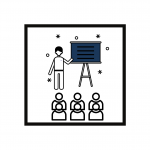





















In high school, take a general college preparatory curriculum that includes classes in business, mathematics, computer science, English, speech, foreign language, and current events.
Identify staff vacancies and recruit, interview, and select applicants . Plan and conduct orientation programs for new employees to encourage a positive attitude toward organizational objectives. Provide current and prospective employees with information about organization policies, job duties, wages, opportunities for promotion and employee benefits, and working conditions. Analyze and modify compensation and benefits policies to create programs that are both competitive with other companies in their field and that ensure compliance with local, state, and federal laws. Perform challenging staffing duties such as refereeing disputes regarding gender or racial discrimination or other issues; administering disciplinary procedures; and firing employees. Administer compensation, benefits, and performance management programs. Prepare and follow budgets for HR department operations. Analyze training needs to design employee development, health and safety, and language training programs. Oversee the evaluation, classification, and rating of occupations and job positions. Conduct exit interviews to identify reasons for employee termination. Study legislation, collective bargaining contracts, and arbitration decisions to assess industry trends. Negotiate bargaining agreements and help interpret labor contracts. Work with organization executives to determine long-terms plans for staffing and benefits programs. Develop or administer special projects in areas such as pay equity, employee awards, and savings bond programs, and day-care.